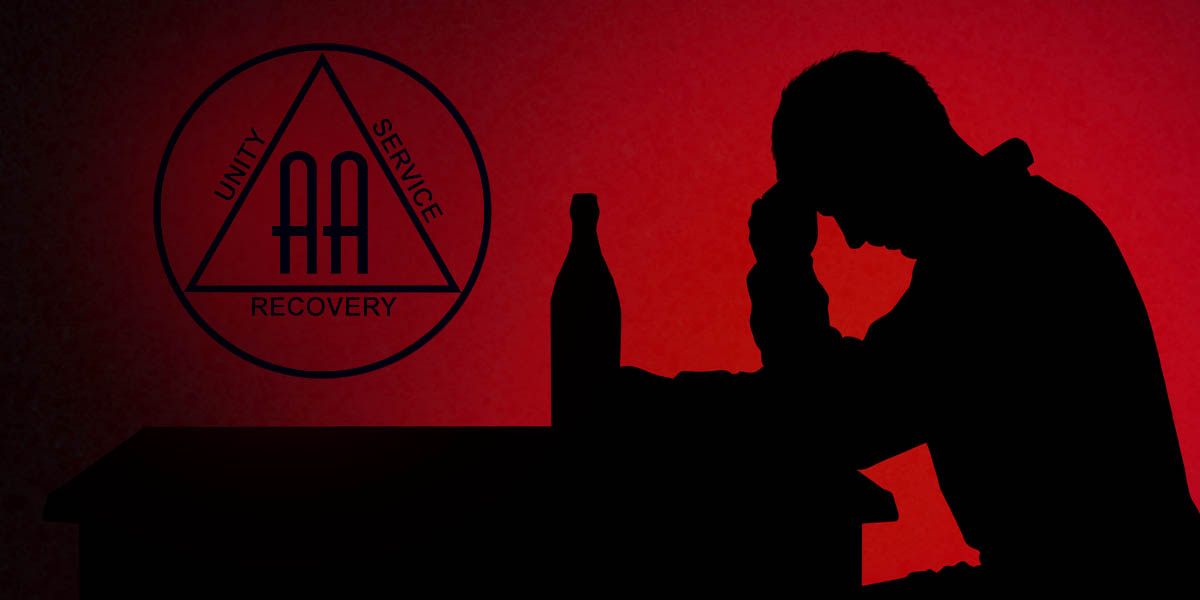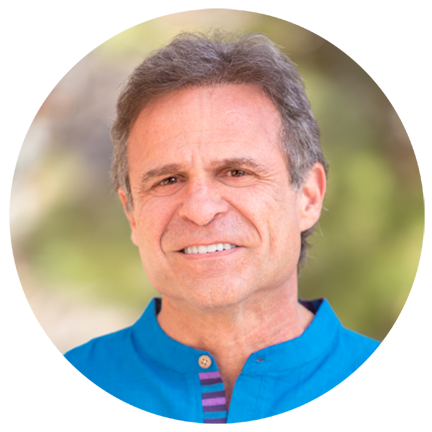Alcoholics Anonymous is a mutual support group that began in 1935. It quickly became, and has remained, the go-to treatment for anyone addicted to alcohol. In recent years, though, more and more people have asked if this mainstream alcohol addiction program really works as well as it claims to.
AA claims to have a high success rate. But this, and AA’s 12-Step philosophy, have never been scientifically proven.
Alcoholics Anonymous is just a group of people, who may or may not have overcome their alcohol use disorder, attending meetings to get help and help others. Professionals aren’t involved with, or even allowed in AA meetings (unless they themselves have a drinking problem). And Alcoholics Anonymous’ main text, nicknamed the Big Book, hasn’t been updated since it was first published in 1939.
And yet, AA’s popularity still persists. That’s because globally, for the past 85 years, it’s been the most widely available alcohol addiction treatment. And it’s completely free.
AA has become so mainstream, professional treatment facilities and courts around the US regularly send people to AA meetings for help. Some of these people don’t even have an alcohol use disorder.
AA is free, highly accessible, and widely accepted. But that doesn’t mean it’s the best treatment program for you. Keep reading to learn more about alternative holistic alcohol treatment programs.
The Science Behind Alcoholics Anonymous
Researchers, and the general public, want to know if AA actually does help people recover (and stay recovered) from alcohol addiction. Over the decades, several studies have tried pinpointing the group’s success rates.
Most of these studies, though, have been informal and anecdotal. Part of the reason for this is because AA members are like the name implies, anonymous. So it’s difficult to ensure quality, reliable participation for scientific studies.
In recent years, studies that are more in-depth and reliable have been conducted to determine if AA actually works or not.
The Cochrane Review of Studies on AA
In March 2020, the Cochrane Library published a review evaluating 27 studies on the effects of Alcoholics Anonymous and other 12-Step Facilitation programs (TSF).
The studies collectively included 10,565 participants who were, on average, between 34-51 years old. Some of the studies compared AA/TSF to other treatments like motivational enhancement therapy (MET) or cognitive behavioral therapy (CBT). Other studies compared AA/TSF interventions that were different from each other in style or intensity.
The Cochrane researchers evaluated the studies to find the effects of AA and other treatments on:
- Abstinence from alcohol
- Drinking intensity
- Alcohol addiction severity
- Alcohol-related consequences
- Healthcare cost offsets
The Review’s Results
The authors of the Cochrane review discovered that increased participation in Alcoholics Anonymous did actually “lead to better outcomes… in terms of producing higher rates of continuous abstinence,” according to the review summary.
“For people already in treatment, if they add AA to it, their outcomes are superior than those who just get treatment without AA,” said review co-author Keith Humphreys.
AA also achieved these positive outcomes at much lower costs than other treatments, according to the review’s results. This makes sense because other types of treatment can sometimes be quite expensive whereas AA is, and always has been, free.
Drinking less and abstaining from alcohol also probably results in less time spent in hospitals due to alcohol-related health complications. One study included in the review found that health care costs reduced 5% for every AA meeting attended.
What the Results Mean for Alternatives to AA
John Kelly, the review’s other co-author, pointed out that “the positive results [from the Cochrane review] likely stem from the mutual support AA provides as well as the program’s ubiquity.”
“I don’t think it’s something unique to AA, as if it’s got some sort of magic,” Kelly said. “It’s rather that the magic of AA is that it’s everywhere and mobilizes these therapeutic mechanisms in a very strong, socially supportive network of recovery support.”
Kelly went on to say that if other mutual support programs were as widely available and as widely accepted as AA, they would probably produce similar results.
Alcohol Use Disorder is Still a National Problem
Regardless of how much AA works or not, the fact remains that alcohol-related deaths in the US are increasing, not decreasing. This alone should be proof that one alcohol addiction treatment option is not enough. People seeking recovery need other options besides just AA.
Think about it. If you had any other chronic illness or disease and one treatment wasn’t working, the doctors wouldn’t accuse you of not trying hard enough or blame you for the treatment’s failure. They would change your doses of medication, or change your treatment, or even offer experimental programs to try to help you.
So why don’t we do the same thing when it comes to alcohol and substance abuse treatment?
AA’s Big Book states, “Rarely have we seen a person fail who has thoroughly followed our path. Those who do not recover are people who cannot or will not completely give themselves to this simple program, usually men and women who are constitutionally incapable of being honest with themselves.” It places the blame of failure on the person, rather than the treatment.
Science has made leaps and bounds in the last decade with our understanding of neuroscience, genetics, and general brain function. Medical textbooks are regularly updated to incorporate new knowledge.
At the very least, AA’s Big Book, and the philosophies it promotes, should be reevaluated and updated too. At the most, every person who doesn’t find success with AA should be informed of and given the chance to try alternative treatment programs.
Alcoholics Anonymous Isn’t for Everyone… And That’s Okay
No matter what science proves or doesn’t prove, the fact is, Alcoholics Anonymous doesn’t work for everyone. There are a lot of non-12-Step treatment programs. They’re just not as widely known or heavily advertised as AA. But they still work.
One comparison study published in 2018 found that LifeRing, SMART Recovery, and Women for Sobriety were just as effective as 12-Step groups. Study author Dr. Sarah Zemore reported that “findings for high levels of participation, satisfaction, and cohesion among members of the mutual help alternatives suggest promise for these groups in addressing addiction problems.”
If you’ve ever gone to AA meetings, but still don’t feel like it’s helping you, or if you’re just turned off by the idea of AA for whatever reason, you do have other options. Just a few of the free alternatives to AA include:
- SMART Recovery
- Moderation Management
- Women for Sobriety
- HAMS: Harm Reduction for Alcohol
- Secular Organizations for Sobriety (SOS)
- LifeRing Secular Recovery
Your journey to recovery doesn’t have to start with AA. And it doesn’t have to end simply because you didn’t like AA or aren’t interested in it.
As Kelly notes, non-12-Step alternative alcohol addiction treatments “could fill the remaining void for people who, for whatever reason, don’t do well in AA.”
The Sanctuary: A Holistic Non-12-Step Treatment Center
The Sanctuary is located on acres of secluded, picturesque land in Sedona, Arizona. We offer a welcoming, open-minded alternative to Alcoholics Anonymous.
AA promotes the idea that “alcoholism is an illness which can never be cured.” And that “once an alcoholic, always an alcoholic.” But we don’t believe alcohol addiction is a disease.
That’s because many people turn to the relief and comfort that alcohol can provide them because they’re hurting and in pain. This pain is usually in every part of your being – from the mental and physical to the emotional and spiritual. And it comes from unresolved trauma from your past or your present.
Effective alcohol addiction treatments must provide healing on all of these levels. At The Sanctuary, we guide you on your path to recovery as you discover and face your fears.
You are not powerless. We believe a complete lifelong recovery free from your addiction is possible. And we know you’re capable of claiming that life for yourself.
You aren’t broken or “unfixable” if you didn’t find success through AA. Don’t resign yourself to a life trapped in the chaos and never-ending cycle of alcohol addiction. There is another way.
Contact us to start a new kind of recovery journey today.
He is the Founder, Administrator, Counselor at the Sanctuary at Sedona. He has a BA in Political Science and is currently Senior teaching staff at Four Winds Society, an international school of energy medicine. His credentials also include being an Ordained Minister; a Certified Shamanic Breathwork® Facilitator; a Founding Member Society for Shamanic Practitioners; a Member of Association for Comprehensive Energy Psychology; a Member of the National Institute for Holistic Addiction Studies. [email protected]


